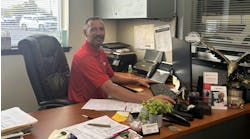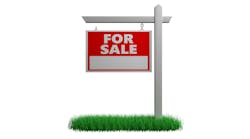Get lean or Risk Losing Business
I'm not saying you can't do a better job marketing and positioning yourself to your customers.
Believe me, most shops have forgotten how to sell and get jobs. In fact, most shops only close sales less than 40 percent of the time, discounting the ones that come in via the fax machine or estimating system. That's awful.
The bottom line is that you must become lean financially to help sustain your business while the other businesses slowly become nonexistent.
Keep in mind, lean applies to production or administrative processes, as well as anything you can think of, including financial management.
Lean management is all about continually defining value and removing waste from your operation. It's not all about doing 5Ss, setting up blueprinting stations and/or better parts departments. It's biggest change comes from between your ears. If you can't get that, your lean initiatives will fail.
One of the most important steps when implementing lean is understanding your value to the customer. What do you do or have that they're willing to pay for? How you do this is your value proposition and pretty much defines you as a business.
Much of this is how you approach the processes in your business. Do you focus on what the customer wants and provide it better than any one else in your market(s), or do you believe everyone is just about the same? If you think everyone is the same, you are making a huge mistake and others thinking the right way are taking advantage.
One of the biggest mistakes made when typical shop owners get into a financial crunch is buying cheap or cutting vital services or products that define your value proposition to your customers and employees. When you look at financial management from a lean perspective, look at the value you're receiving for the costs you're paying, not just the lowest priced item in the category.
If you don't, you'll have a large collection of junk or will be using inferior products, offering poor services and even losing solid employees.
Shop owners don't like to look at the details of the financial reports. I'm not referring to the easy stuff, such as gross profits on the cost of goods sold, such as parts, labor departments, paint and materials, sublets and other additional services.
I'm talking about supplies, electrical, gas, vehicle fuel, tax liabilities, banking expenses including interest, credit card processing, insurance, marketing, and just about every other item that takes from the bottom line. You're probably thinking this isn't entrepreneur work, but then, whose is it? The focus must be on value.
In a little more than a month, NACE will be in Las Vegas. During this event, there are many educational events planned and available to you to learn how to become more lean.
A few weeks later, SEMA will be back in Las Vegas to provide education about lean as well. If you're not able to take advantage of the programs there, you can always get them in your area or shop by contacting the Automotive Management Institute (AMIonline.org).
I strongly suggest you improve your lean management. You're not expected to know everything to remain successful in business, but you need to know where to get help and information when your business needs it.
You need to be willing to make needed changes. Market conditions are dictating those, so you need to understand how lean thinking is the first step. See you at NACE and SEMA.
Contact info: [email protected]




